Sunderland AFC documentary Premier Passions marks 25th anniversary - and it still remains an eye-opener
and live on Freeview channel 276
There had been a 1981 a documentary about Manchester City, simply called City. This was followed in 1994 when England manager Graham Taylor was infamously filmed.
But in 1998 Sunderland went much further. Many years later, Premier Passions begat Sunderland ‘Til I Die on Netflix. Other clubs are still catching up.
Background
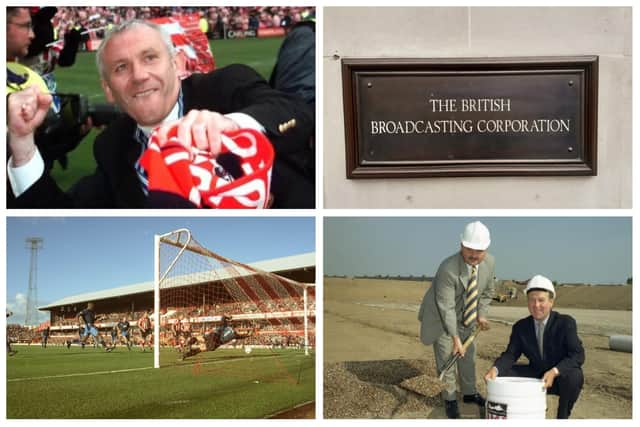

Advertisement
Hide AdAdvertisement
Hide AdIn 1996 the BBC contacted Sunderland AFC. A football club was wanted to accommodate a fly-on-the-wall documentary. Sunderland had recently been promoted to the Premier League.
Roker Park was about to be substituted for the Stadium of Light, which would almost double capacity. The club needed a higher profile to attract more custom – and agreed.
Chairman Bob Murray and deputy chairman John Fickling were keen. But crucially the BBC was given complete editorial control. Any unfavourable content would have to be taken on the chin. It was warts and all, with a number of warts being duly broadcast.
Directors were afforded the courtesy of viewing Premier Passions before it was broadcast, but could not have anything removed. Nor did they ever request such a thing.
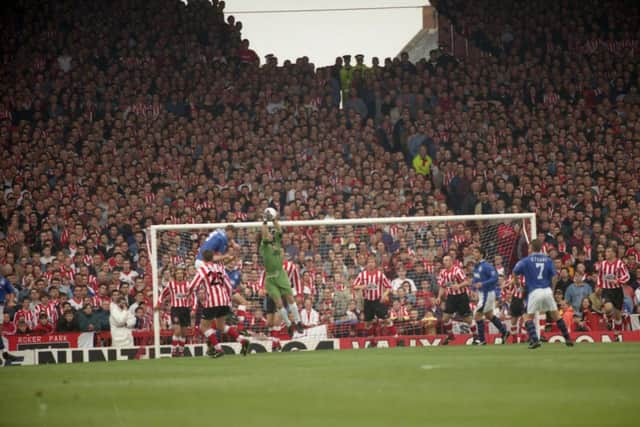

Advertisement
Hide AdAdvertisement
Hide AdAny journalist will tell you that doing it another way would have been pointless. Furthermore, the club believed in its integrity and was keen to demonstrate that there was nothing to hide even in the 1990s; the autumn days of football’s booze culture.
Production
Director John Alexander enlisted BAFTA-winning actor Gina McKee as narrator. Both were from Peterlee. The producer was Stephen Lambert, of Gogglebox fame.
Alexander created a piece of art with tension, drama and unwitting comedy. The effect was helped by very appositely selected, mood-setting choral music and arty credits.
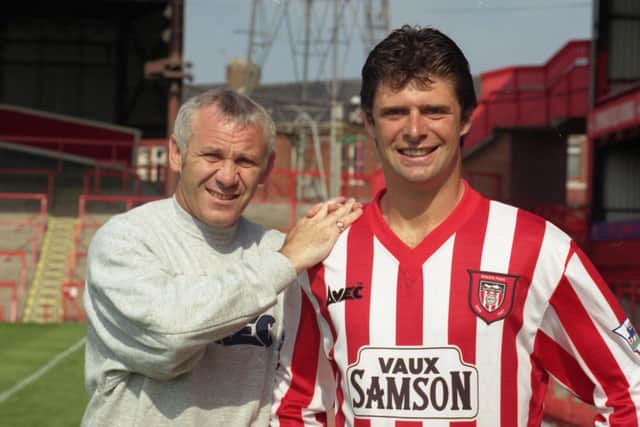

Sunderland’s players soon became oblivious to the camera team, such was the near-permanent presence of the crew. “Ordinary” staff who found themselves being filmed were less blasé.
Advertisement
Hide AdAdvertisement
Hide AdYour author was then one such staff member. In episode five I was miked up and filmed giving a tour round the incomplete Stadium of Light; waffling about “vomitories” and something about the pitch phoning the groundsman (said in good faith, but nonsense as it turned out).
SAFC is never dull, but the club was at a particularly interesting point in its history. Aside of the ground move, there was the flotation on the stock exchange which was initially very successful.
Reception
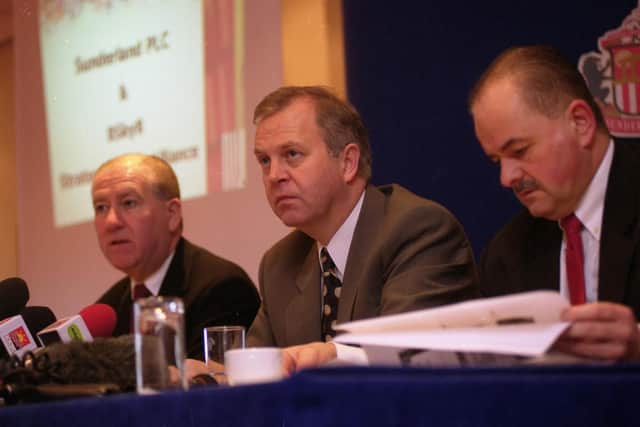

The programme was well-received with a number of memorable scenes.
There was a board meeting where the word “relegation” was banned and replaced with “Scenario B”, project manager Dave Nicholson’s unflappable confidence that the new stadium would open on time (it did), the ban on away fans at Newcastle and a transfer target failing a medical.
Advertisement
Hide AdAdvertisement
Hide AdOne of those warts-and-all moments was Bob Murray deciding on which gold taps to install in the new boardroom’s bathrooms. As the club had been relegated when the episode was broadcast, this was perceived by some as fiddling while Rome burned.
Somewhat unfairly. The new stadium was built to last at least a century and someone had to make such decisions. What would the reaction have been had the taps been bought for a tenner from MFI?
Peter Reid
The main appeal of Premier Passions was its access to the usually sacrosanct dressing room, which also meant a 10.50pm scheduling.
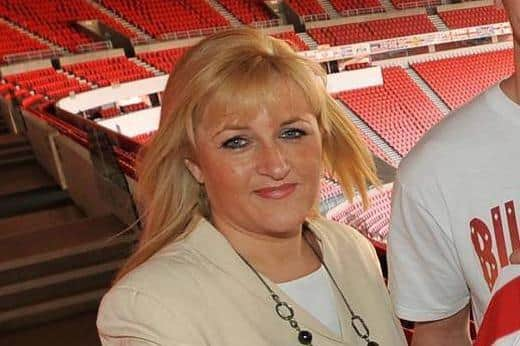

At a press conference held three weeks ahead of the first broadcast, reporters were shown clips of manager Peter Reid using his undeniably fruity vocabulary to make his feelings plain to his players.
Advertisement
Hide AdAdvertisement
Hide AdTabloid journalists seized on this. The first question at the conference was about swearing, with “BLUE PETER” among the more memorable headlines (bad language in newsrooms was evidently unheard of).
Shock was affected that an angry, working class bloke with a noted competitive streak didn’t speak like a Radio 4 announcer. The clue was in the show’s title and 3.5 million viewers made just four complaints.
However, Reid was the undoubted star of the show, partly due to his pyrotechnically foul language (he later expressed concern that his Auntie Mary would be watching).
Viewers also wondered how “HEY! RELAX!!!” being screamed from the touchline could possibly have the desired effect. Reid’s dressing room “chats” were later parodied in the film Mike Bassett: England Manager.
How it ended
Advertisement
Hide AdAdvertisement
Hide AdThere were five episodes. Episode four closed with victory over Everton in the final ever real game at Roker Park, May 3, 1997.
So skilfully put together was it, that viewers were lent a strange sense of hope that “Scenario B” could be averted, even though everyone knew that defeat at Wimbledon the following week and relegation awaited in episode five.
Former Sunderland director Lesley Callaghan recently told the Echo why the club agreed to the documentary.
She said: “Nobody amongst us thought we’d be relegated at the end of it. When we made the decision there was £10 million to spend, which seems ridiculously small now, but it was more than we’d ever had to spend before.
Advertisement
Hide AdAdvertisement
Hide Ad“We thought that would be enough to keep us in the Premier League. Then it went to the final game – and it wasn’t the outcome we’d expected.”
If the season ended, to put it mildly, in disappointment for the club and its supporters, the glorious failure was a boon for Premier Passions. The makers knew it would resonate with football fans everywhere. And it did.
When the series ended Lesley Callaghan’s postbag was filled by well-wishing supporters of other clubs.
Aftermath
The last section to be shot was in November 1997. The celebrated Phillips-Quinn partnership was shaping up and so were Sunderland, even if that season ended in yet another glorious failure at the play-off final.
Advertisement
Hide AdAdvertisement
Hide AdA single-episode follow-up, Premier Pressures, was shown by the BBC in August 1999 when Sunderland were back in the Premier League. Happy days, but it just wasn’t as good. Happiness just isn’t what grabs the viewer.
